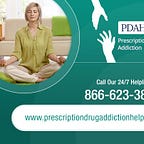6 Ways Hospitals Can Help Fight Opioid Epidemic
To overcome opioid epidemic in the United States is now a cumulative effort of the local, state and federal governments, law enforcement agencies, hospitals, doctors and the concerned citizens. According to the Centers for Disease Control and Prevention (CDC), 78 Americans succumb each day to opioid overdose.
The CDC said that more than 165,000 people died from opioid overdose in the U.S. during 1999–2014, and in 2014 alone, over 14,000 people succumbed to opioid overdoses. More than 1,000 people are treated in emergency departments each day for misusing prescription opioids. In the light of such admissions, hospitals and doctors have a greater role to play when it comes to tackling opioid overdose and misuse.
To ensure that hospitals are better equipped to handle opioid cases, the American Hospital Association (AHA), in association with the CDC, recently developed new patient tools and other resources that will help hospitals communicate with their patients about the risks and benefits involving opioids.
Hospitals can employ strategies while addressing opioid abuse
The AHA encourages “hospitals and medical staff to review their policies and procedures to ensure that opioids are handled properly and that patients are neither undertreated for pain nor overprescribed prescription pain medication.” Some of the important roles that a hospital can play in fighting opioid abuse, as per the AHA, are:
1. Ensuring physicians’ education about appropriate prescribing practices, as well as enabling patient education about risks and benefits of opioids.
2. Giving treatments or necessary referrals for patients who are battling substance use disorder (SUD).
3. Ensuring that patients who are being treated for opioid abuse or SUD are discharged in a proper manner.
4. Managing individuals with drug-seeking behavior in the emergency department (ED) suitably, with prescription drug monitoring programs being incorporated accordingly during the process.
5. Reviewing if there are opioid alternatives to pain management.
6. Safeguarding prescription opioids against any kind of diversion.
Patient education important for curbing opioid epidemic
Hospitals believe that educating patients about the pros and cons of opioids can help lower their abuse. To assist hospitals in educating patients, the AHA, in collaboration with the CDC, developed a patient education resource, outlining the risks and side effects of opioids. The same can be utilized as a tool to initiate conversations with patients before prescribing opioids; to plan discussions with patients at the time of discharge, especially with respect to medication understanding; and to build awareness.
The patient information resource highlighted a very important point: “What to do when one is prescribed opioids for pain?” Many people are unable to manage the dosage of prescription pain medicines and do not adhere to the patterns of consumption. When medicinal dose takes the form of an addiction remains a mystery for many. Some of the important points that have to be considered by a patient on opioids are:
· One should adhere to the prescription dose and not take greater amounts than what is written in the prescriptions.
· One should undergo regular follow-ups with the primary provider to develop a plan to manage pain, talk about ways and means to tackle pain without using opioids, understand their side effects and voice concerns.
· One should never share or sell prescription opioids and should never use someone else’s drugs.
· One should safely store the opioids, out of reach of family members, friends, children, etc.
· One should safely dispose of the unused prescription opioids.
If people follow certain norms, then addiction will not affect people. However, if one is already battling prescription drug abuse, it is important to seek medical help from reliable prescription abuse treatment centers in U.S.A. The Prescription Drug Addiction Helpline can help you find the best curative interventions in one of the prominent prescription drug abuse treatment centers in U.S.A. Call our certified representative at 24/7 helpline number 866–623–3847 for more information.
